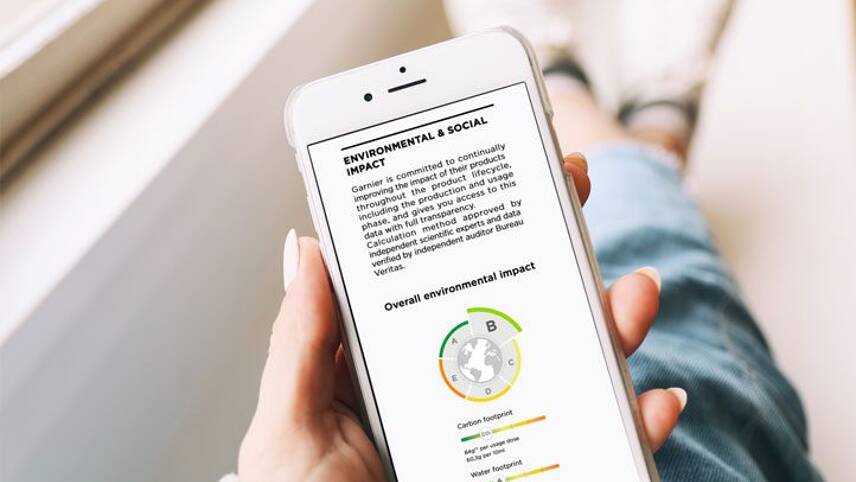Register for free and continue reading
Join our growing army of changemakers and get unlimited access to our premium content

The tool has already proven successful in France
The company will use data relating to emissions, water, biodiversity and other sustainability topics to give each product an overall grade between A and E. These ‘planetary impact’ grades will then be relayed to consumers on a dedicated website, which will launch in the coming weeks.
Garnier has already launched a similar tool for customers in France, which launched last year and has been visited by more than 2.6 million people. Once the UK launch is complete, the brand’s next focus for the labelling project will be the US and UAE.
Garnier’s global brand president Adrien Koskas said the aim of the tool is to “empower consumers to take one green step by making a more sustainable choice”. Koskas said the company has been tracking a trend towards conscious consumerism among customers for some time. Its recent survey of 18,000 adults across its global markets revealed that 81% want to lead more sustainable lifestyles in 2021, with 40% having set a specific New Year’s resolution aimed at reducing their environmental impact.
The development of the scores will have also seen the business striving to collect more and better data behind-the-scenes, providing insight into focus areas for minimizing environmental impact.
To this latter point, the announcement from Garnier comes six months after parent company L’Oreal unveiled its new sustainability strategy through to 2025. The strategy includes ambitions to halve emissions across all scopes and use offsetting to reach carbon neutrality; to switch to 100% renewable electricity and to ensure all plastic packaging comes from recycled or bio-based sources.
Product innovation is also on the table. November 2020 saw the brand launching shampoo bars in plastic-free packaging, which it claims has a 25% lower environmental impact across the life-cycle than classic liquid shampoos.
Communicating with consumers
Several companies have launched or expanded efforts to better communicate the environmental impact of products with shoppers in recent months.
Tech giant Logitech and food firm Upfield, which owns brands including Flora, both introduced carbon labelling to products for the first time in 2020. Quorn also scaled up its carbon labelling efforts. A global survey of 10,000 consumers by The Carbon Trust found that more than two-thirds (68%) support carbon labels.
Some experts believe that carbon labelling could soon become mandatory for certain products, while others believe that a growing number of big businesses will adopt the approach, eventually creating critical mass. To the latter point, both Nestle and Premier Foods are exploring a carbon labelling rollout.
On-product QR codes which provide environmental information when scanned are also becoming more common. AB InBev, Princes Foods and The Estee Lauder Companies have all confirmed plans for QR-coded products which, when scanned, provide environmental information logged via tamper-proof blockchain platforms.
Sarah George


Please login or Register to leave a comment.